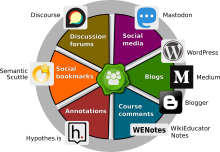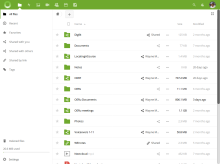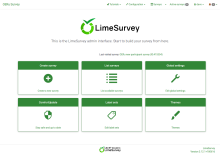Hourly versioned MongoDB backup
Because the collaboration of an open community is its real history, I place a high value on backing up the Rocket.Chat servers I'm responsible for, and especially the data they generate, held in MongoDB files (on the host) managed by a MongoDB container.
To do that reliably, I have set up a bash script which does an hourly backup of all MongoDB "databases" and automatically maintains 24 hourly, 7 daily, 4 weekly, 12 monthly, and 7 yearly snapshots of the databases.
Upgrading RocketChat to 1.0.x and MongoDB to 4.0
With the recent release of Rocket.Chat 1.0.x (after a couple years undergoing development at a fairly blistering pace), it's time for many of us to upgrade!
Previously, I showed how to install Rocket.Chat via Docker Compose but that was a much earlier version of Rocket.Chat and version 3.4 of MongoDB, which is now quite old (by FOSS standards at least). And it turns out upgrading everything has a few gotchas, so here's how I managed to do it.
Democratising Higher Education with OERs & FOSS
Rather than write a slide-based presentation for the Open Education miniconf at Linux.Conf.AU 2019, I thought I'd try an approach that seemed to work quite well recently: write my presentation as a blog post and make it available for posterity, before and after. You can find this post quickly by going to oer.nz/lca if you want to look at it on your own device.
2018 update on the OERu Technology Stack
As I prepare for the 2018 OERu Partners' Meeting, I'm working how to convey the depth and breadth of the OERu open source technology stack - our infrastructure and applications - to our partners and other attendees.
Over the past year, we've had our first live OERu courses allowing learners to work towards a formal exit qualification (our "1st year of study"), and our infrastructure has worked as intended throughout, so I'm chalking that up as a win.
The OERu Blog Feed Finder
One of the distributed tools that the OERu makes available as part of its open source distributed digital learning environment is WEnotes. I've described what it is and how it works previously.
What is the OERu? - Pizza Thursday talk for Catalyst Christchurch
I've been asked to speak about the OERu to my former colleagues at Catalyst IT's Christchurch office as part of their monthly "Pizza Thursday" talks. Amusingly, this talk will be on a Friday, and lunch will be curries rather than pizza :)
Creating Simple, Semantic HTML Markup from a Google Doc
Google Docs are great for allowing people to collaboratively build a document, with the ability for people to suggest (and discuss) changes and view revisions and a variety of other useful behaviours. At present, I'm sad to admit, CollaboraOffice isn't quite in the same level (although it's catching up quickly!).
Insight: what does the Open Source Technologist at the OER Foundation do?
A few weeks ago, I got an unexpected (but very flattering!) request from a friend and colleague's son, Felix. He wanted to interview me about my work (at 11, he thinks he might want to become a software developer, too, when he's older) as material he could present at an up-coming PechaKucha session at his school... Wow, we didn't do PechaKucha when I was a kid :)
Installing NextCloud and Collabora Office Online with Docker on Ubuntu 16.04
Update 2021-11-08: this post is now getting a bit long-in-the-tooth, and I need to update it to use up-to-date components. It might still be useful to folks, but use it with caution. Also, please note, we're using NextCloud with OnlyOffice (the open source community edition) these days. Update 2023-06-14: Here's a new tutorial for Ubuntu 22.04!
Installing LimeSurvey with Docker on Ubuntu 16.04 with Nginx and Mariadb
LimeSurvey is an open source survery tool, functionally similar to far more heavily marketed proprietary tools like SurveyMonkey and Google Forms. It's a very mature, fully-featured system. You can either use the reasonably priced hosted service available on the LimeSurvey site, or you can host your own, holding your own data and collecting your own analytics if you prefer. The only cost of hosting your own is your time to set it up and any costs associated with your hosting environment (which, today, can be negligible).



